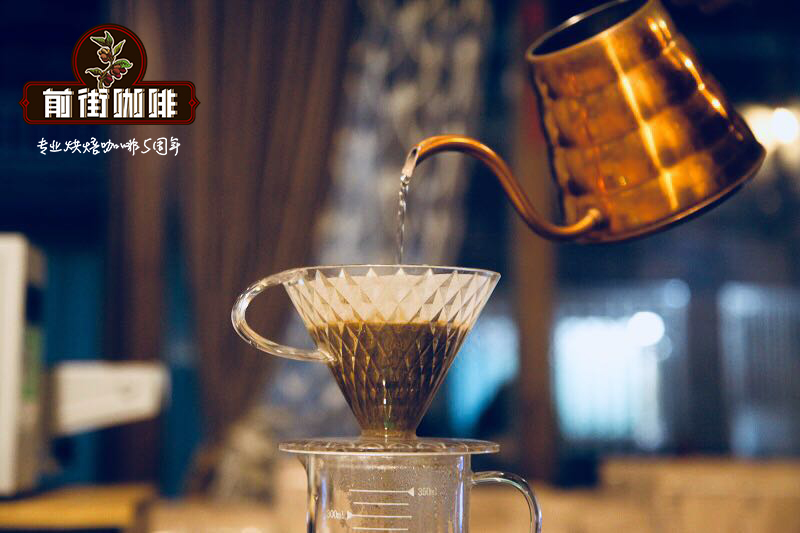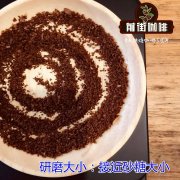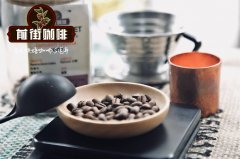Specialty Coffee= Specialty Coffee?

Professional coffee knowledge exchange more coffee bean information please follow the coffee workshop (Wechat official account cafe_style)
Coffee classification
Coffee is a new product for all human beings. no one on earth drank coffee just 900 years ago. compared with wine and tea with a history of thousands of years, we can see the immaturity of human history of roasting, brewing and drinking coffee. Compared with the coffee history of all mankind, the coffee history of Chinese is even shorter! In the eyes of the Chinese, coffee is a product of the West, and we will give it a Chinese translation name for anything from the West. The Chinese character is broad and profound. However, because people are not familiar with this thing (coffee), some nouns are not appropriate in translation and fail to fully match the original meaning, resulting in many misunderstandings.
Specialty Coffee = > "boutique coffee"?
The word "boutique coffee" can be called the first misunderstanding. Specialty Coffee is a nearly 40-year-old word, originally a concept, compared with the old low-quality mass-produced coffee, in 1974, Ms. Erna Knutsen of the United States put forward this different concept, which stands for "good coffee produced in a special microclimatic environment with the best flavor." At present, this term is synonymous with all the good coffee in the world, which means coffee products with good quality, from planting conditions to raw bean treatment, from screening to freshness maintenance, from roasting to brewing, under certain attention and careful control. More than a decade ago, the concept of Specialty Coffee spread into the Greater China Circle, when different translation names appeared, such as "special coffee", "fine coffee", "refined coffee" and "special coffee". The mainstream translation method in Taiwan is "fine coffee". Frankly speaking, the author is also one of the promoters of the translation of "fine coffee" at that time, but now more than a decade later. However, it is found that the word "boutique" can easily lead to some intuitive associations and misunderstandings.
"boutique" reminds people of luxury, scarcity, high price, even with some sense of distance, mortal can not easily enjoy the feeling, however, in the original meaning of the concept of Specialty Coffee, does not have any of the above described meaning. Although the price of coffee beans is soaring year by year, not all the coffee of Specialty Coffee concept is out of reach. There are many coffee beans in coffee producing areas all over the world that are not expensive, but truly accord with the concept of Specialty Coffee. If the translation is misunderstood and given extra meaning, it is obviously not an appropriate and correct translation.
"Special selection" is reminiscent of something specially selected and different from the concept represented by Specialty Coffee. The "special" is even less appropriate. there are more than 2,000 varieties of developed and undeveloped coffee beans on the earth, which are "special"? Neither "special" nor "special" can properly restore the concept of Specialty Coffee. Among the many translations currently in existence, only the word "exquisite coffee" can convey the correct concept of Specialty Coffee. Because of the exquisite planting system, because of the exquisite selection, packaging, transportation, storage, baking and blending, consumers can enjoy this cup of "exquisite" good coffee! If you also agree with this translation, from now on, please stop saying "boutique coffee"!
Espresso = > "espresso"?
As a matter of fact, the word Espresso is also full of misunderstandings in western countries, and it is often added by unknown people to "x" to become "Expresso". In fact, there is no X, which is misspelled. In the Chinese world, there is a big misunderstanding in the translation of the word Espresso, which is called "espresso" in Chinese. If you delve into the original meaning of espresso, you will find that "espresso" does not have the slightest concept of "concentrated" or "strong" in it. In Italy, the founding country of espresso, "espresso" means "stressful", "fast" and "specially prepared for you". Any coffee that is "brewed quickly under pressure" is called espresso, and "specially prepared for you" is a deep and additional meaning of this drink.
After understanding this, you will find that "Espresso" has nothing to do with the concept of "concentrated" or even "strong". However, because the Chinese translation of the name "espresso" makes people misunderstand, people are scared when they see the word "concentrated"! "Wow! Coffee is originally bitter (* author's note: this is also a misunderstanding, let it be shown later), but also concentrated! Is this drinkable? " "I heard that Italians drink five cups of espresso a day. It's amazing. I can't stand two cups of unespresso coffee a day. Are they still human?" In fact, these are all misunderstandings caused by improper translation of Chinese names!
If you have been to Italy, standing in the Bar and drinking a glass of caff è (that is, espresso) like them, you will find that, in fact, Italian espresso will not give you a strong feeling, but most of them are quite soft and palatable, regardless of taste, concentration and temperature, and enjoy the aftertaste. This is the unique charm of the IES system (Italian Espresso System temporarily translated as "Italian instant coffee system"). Because the translation of the name is inappropriate, but also because the world's mainstream third wave of cafes and WBC events generally take the SES (Seattle instant coffee system) system as the mainstream, the unique thick and strong characteristics of the SES system, people's misunderstandings are deeply rooted.
The word "condensed" makes people afraid to taste espresso, even though Espresso is thousands of miles away. It also causes many people's misunderstanding that espresso should be thick and exciting. In fact, the thick paste of SES Seattle system espresso is just one of many types of espressso, not all. At present, I don't know what kind of Chinese name espresso should take. "Italian coffee" is a bit narrow, in fact, Seattle-style espresso (SES), a branch of SES, which is completely different from the Italian system (IES). Should Nordic espresso also be called "Italian"? The word "instant coffee" may be an expedient translation, at least to convey the original meaning of espresso, do you think of a better translation? Please brainstorm together, do not let the Chinese word "espresso" continue to "condense", okay?
What is listed in this article is only the tip of the iceberg. Let's brainstorm together to think about whether there are other translation misunderstandings and what is a more appropriate Chinese term.
* Note: the two main Espresso systems in the world are: IES = Italian Espresso System and SES = Seattle Espresso System. The so-called "system" is a concept that covers all aspects of the whole, not just the cooking method. At present, the third mainstream of coffee is the SES Seattle system, which inherits the David C.Schomer theory and continues to develop from the founder of Seattle Espresso Vivace, which is completely different from the IES Italian system. Nordic Espresso system is a branch of Seattle Espresso system.
Important Notice :
前街咖啡 FrontStreet Coffee has moved to new addredd:
FrontStreet Coffee Address: 315,Donghua East Road,GuangZhou
Tel:020 38364473
- Prev

Japanese coffee types, flavors, and size learned at once! What kind of coffee do Japanese cafes have?
Professional coffee knowledge exchange More coffee bean information Please pay attention to coffee workshop (Weixin Official Accounts cafe_style) Breakfast to have a cup of coffee to wake up, afternoon tea to eat dessert with coffee, as the most important spiritual supplement in life, travel to Japan of course no reason not to drink! So it must be very troublesome if you can't order food, right? Happy Buy! Japan organizes coffee shops that often appear on the menu
- Next

The types and characteristics of Coffee Daquan Coffee is not just a Beverage Coffee
Professional coffee knowledge exchange more coffee bean information please follow the coffee workshop (Wechat official account cafe_style) coffee, it is really just a drink just people who drink it, too complicated! Coffee belongs to the evergreen shrub of the genus Rubiaceae. There are about 125 species of plants under the genus Coffea, distributed in the subgenus Coffeae (25 in Africa and 55 in Madagascar).
Related
- What brand of black coffee is the most authentic and delicious? what are the characteristics of the flavor of the authentic Rose Summer Black Coffee?
- Introduction to the principle and characteristics of the correct use of mocha pot A detailed course of mocha pot brewing coffee is described in five steps.
- Which is better, decaf or regular coffee? how is decaf made?
- How much is a bag of four cat coffee?
- How about four Cat Coffee or Nestle Coffee? why is it a cheap scam?
- Which is better, Yunnan four Cats Coffee or Nestle Coffee? How about cat coffee? is it a fake scam? why is it so cheap?
- How about Cat Coffee? what grade is a hoax? which instant coffee tastes better, four Cat Coffee, Nestle Coffee or G7 coffee?
- Process flow chart of coffee making-Starbucks coffee making process what coffee tastes good at Starbucks
- The top ten best coffee beans in the world Rose summer coffee or Tanzanian coffee tastes good
- Yunnan four cat coffee is good to drink?_four cat coffee is a big brand? four cat blue mountain coffee is fake?

